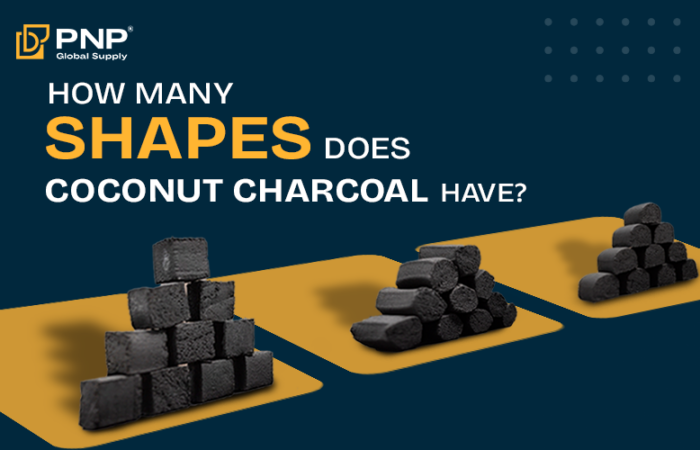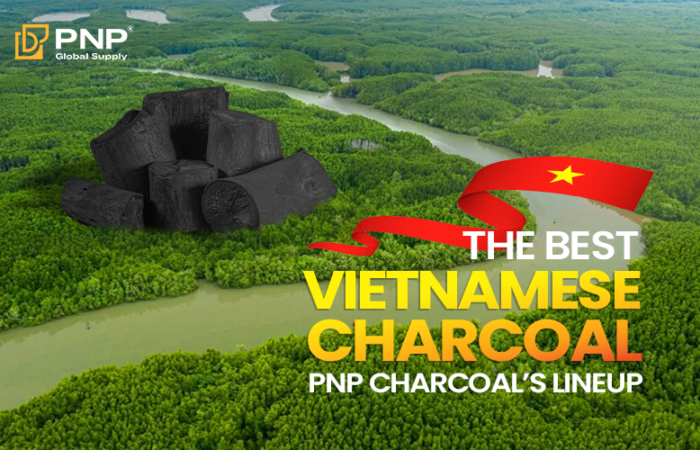When it comes to exporting hardwood charcoal, the quality of the product is just one part of the equation. The way it is packaged — from material type to labeling and branding — plays an equally vital role. Choosing the right charcoal packages not only ensures the charcoal’s integrity during transport but also enhances the product’s value and appeal in international markets. Let’s explore the best packaging solutions for bulk hardwood charcoal export and understand how proper packaging can make a real difference for your business.
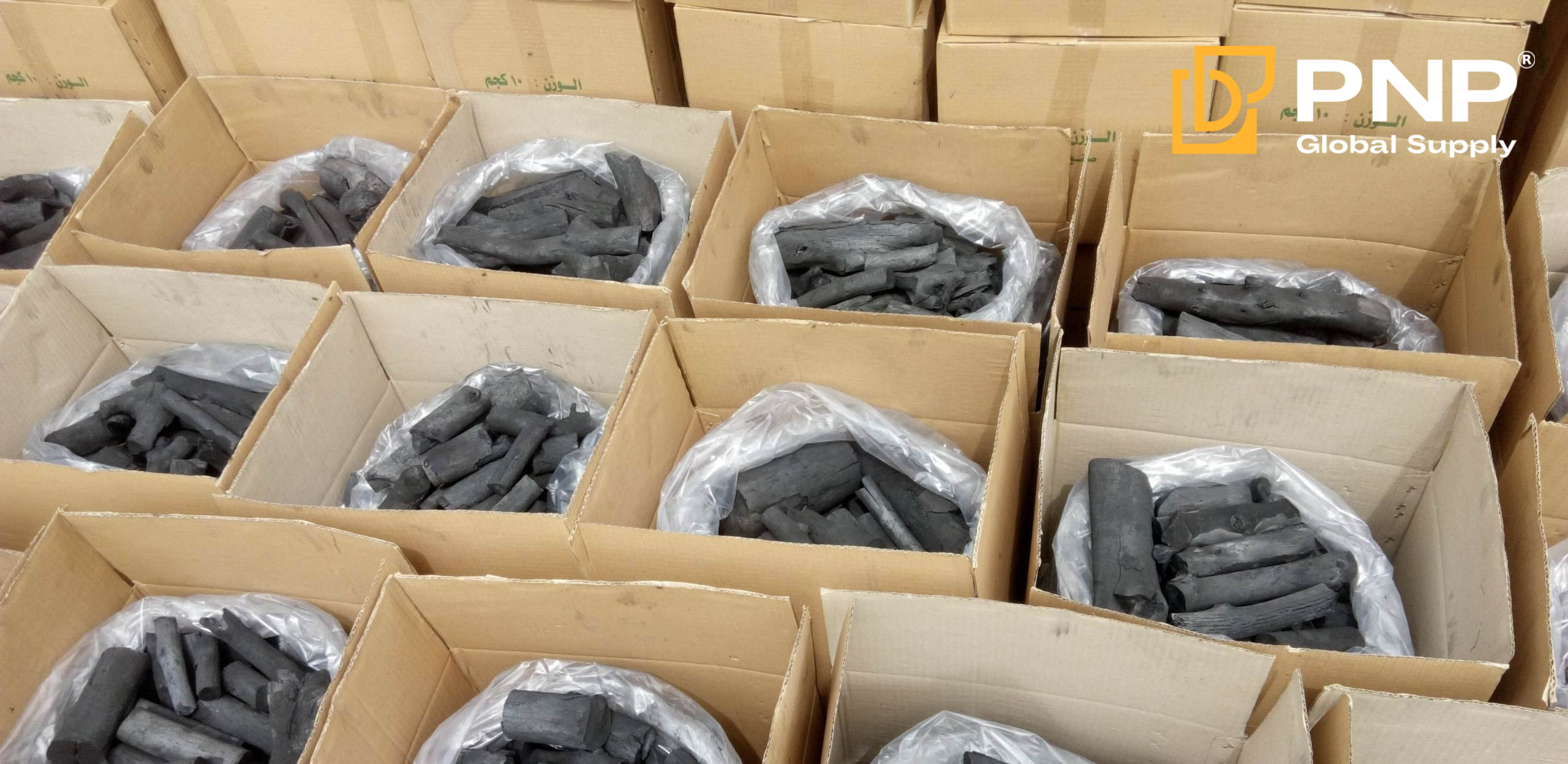
Why Packaging Matters in Charcoal Export
For exporters and producers, charcoal packaging is far more than a container. It is a critical step that determines whether your hardwood charcoal reaches buyers in perfect condition. High-quality packaging prevents moisture absorption, breakage, and contamination during shipping. This is especially important for lumpwood charcoal, which can be brittle and sensitive to humidity.
In addition, packaging can affect the price of charcoal. Charcoal products with durable, well-branded packaging often command higher prices in retail and export markets. For a charcoal factory, investing in modern packaging solutions can help secure long-term contracts with distributors and enhance brand credibility. A good charcoal package is a clear reflection of a factory’s quality standards and professionalism.
Common Types of Charcoal Packaging
Different packaging types serve different needs — from retail-ready bags to large-scale export formats. Below are the four most effective charcoal packaging solutions used by exporters and charcoal factory producers to protect and promote their products worldwide.
Carton Boxes
Carton boxes are a preferred option for charcoal packages, especially when exporting hardwood charcoal and lumpwood charcoal in bulk. These boxes are strong, sturdy, and provide reliable protection against physical damage during long-distance transport. They also prevent breakage and keep the charcoal intact, maintaining its high quality and value.
For exporters, carton boxes offer excellent branding opportunities. They can be customized with printed designs, product labels, and eco-friendly materials that meet international standards. Many charcoal factory suppliers use carton boxes made from recyclable materials, which appeal to environmentally conscious importers. Though slightly more expensive, this packaging can help justify a higher price of charcoal in premium markets.
High-Quality Bags
High-quality bags are another popular choice for charcoal packaging, often used for medium-sized kg charcoal BBQ packs ranging from 5 to 20 kg. These bags are made from durable laminated films or moisture-resistant materials that protect hardwood charcoal from humidity and dust.
They are lightweight, easy to handle, and provide a neat appearance for retail display. With attractive branding and labeling options, high-quality bags allow exporters to strengthen their identity in global markets. This type of packaging strikes the perfect balance between affordability and protection — suitable for BBQ distributors and professional kitchens seeking consistent, long-burning lumpwood charcoal.
Plastic Bags
Plastic bags are one of the most cost-effective charcoal packaging options, ideal for smaller quantities or short-distance transport. Although not as durable as carton boxes or PP woven bags, they provide basic protection against moisture and contamination during delivery.
Plastic bags are practical for kg charcoal BBQ products sold in supermarkets or local stores. Their flexibility and lightweight design make them easy to pack and ship. For exporters or charcoal factory producers looking to minimize logistics costs, plastic bags offer a budget-friendly solution while maintaining essential product protection.
PP Woven Bags
PP woven bags (polypropylene woven bags) are the top choice for bulk hardwood charcoal export, known for their exceptional durability and weather resistance. These bags can carry large volumes — from 20 kg to 1000 kg — without tearing, making them perfect for industrial and wholesale buyers.
PP woven bags are treated to resist moisture and sunlight, protecting lumpwood charcoal during sea freight and storage. They are reusable and recyclable, aligning with the growing demand for sustainable packaging solutions. While the initial cost may slightly increase the price of charcoal, the protection they provide helps maintain quality and prevent loss — a worthwhile investment for exporters and charcoal factory suppliers.
Which Charcoal Packaging Should You Choose?
Thanks to their durability, reusability, and cost-effectiveness, many exporters prefer PP woven bags over other packaging types. These bags help reduce the need for frequent repurchasing and optimize overall export costs. For large-scale shipments, reusing PP woven bags significantly lowers expenses while still ensuring product safety and maintaining charcoal quality throughout transportation.
Packaging Standards in Charcoal Factories
A professional charcoal factory follows strict standards when it comes to packaging. After carbonization and screening, the charcoal is weighed and packed using automatic filling machines. Bags are heat-sealed or stitched to prevent leakage, and labels are attached to display essential information.
Quality factories often implement moisture control processes, including desiccant placement or humidity checks before sealing. This prevents charcoal from absorbing moisture during long sea shipments. Palletizing the packages further enhances safety and efficiency during container loading.
Factories exporting to regions like the EU, Japan, or the Middle East must also comply with labeling regulations and environmental packaging standards. These include requirements for material recyclability and non-toxic printing inks.
If you want to learn more about the standard kg charcoal quantities used in bulk export and how different packaging sizes affect shipping efficiency, check out our next article for detailed insights and practical examples: What is the suitable kg charcoal BBQ packaging weight for export?
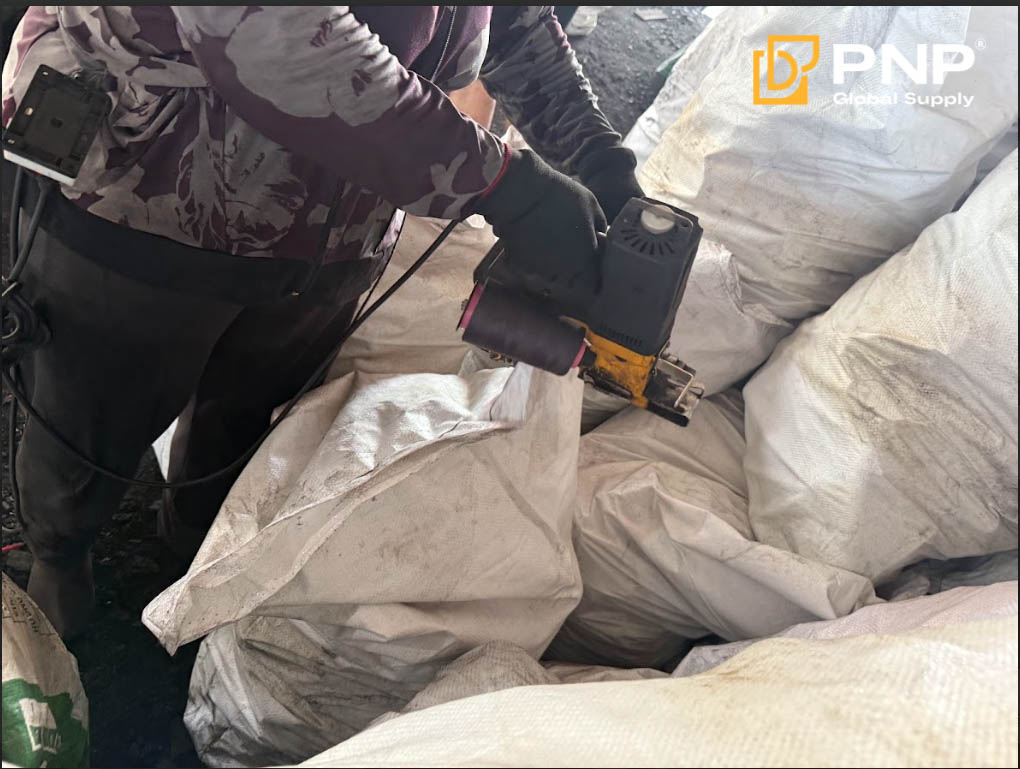
Labeling and Branding for Export Markets
A well-designed charcoal package does more than hold your product — it tells your story. The label should include the type of charcoal (hardwood charcoal or lumpwood charcoal), net weight, production origin, and safety warnings. For kg charcoal BBQ products, clear cooking instructions and usage icons add professionalism and help users handle the product properly.
Strong branding on packaging builds trust. When a buyer sees your logo and quality seal consistently, it reinforces reliability. Printed kraft bags and full-color cartons allow exporters to highlight their brand values — such as “eco-friendly,” “long-burning,” or “restaurant-grade charcoal.”
Cost Considerations and Price Impact
Packaging is a crucial factor in determining the final price of charcoal. While basic woven bags may seem cheaper initially, poor packaging can lead to breakage or product loss — ultimately increasing your costs. On the other hand, premium packaging adds value and enhances shelf presence.
Exporters can optimize packaging costs by ordering in bulk from local suppliers or partnering with a charcoal factory that offers in-house packing services. Efficient designs like stackable bags or compact jumbo sacks can also reduce container space and shipping costs per ton.
For retail-ready products, the added cost of design and printing is easily justified by higher resale prices and stronger brand positioning in foreign markets.
Where to Source Reliable Charcoal Packages and Suppliers
To ensure consistent quality, partner with a charcoal factory that offers customized charcoal packages for export. Reliable suppliers can provide multiple packaging options, from retail bags to container-ready jumbo sacks. They also understand the handling requirements of hardwood charcoal and lumpwood charcoal for different markets.
When sourcing packaging suppliers, look for manufacturers with international certifications and export experience. Always check minimum order quantities (MOQs), printing quality, material specifications, and durability tests before bulk production. Good suppliers also provide sample packaging for quality verification before shipment.
At PNP Charcoal, we not only supply premium hardwood and lumpwood charcoal but also provide charcoal packaging design and production services tailored to customer needs. Our packaging solutions range from eco-friendly bags to large export cartons, ensuring product safety and brand consistency. Whether you require kg charcoal BBQ packs or bulk export packaging, PNP offers complete support from design to delivery.
Visit our website: PNP Charcoal to learn more about charcoal packages and get a customized quotation for your export needs.
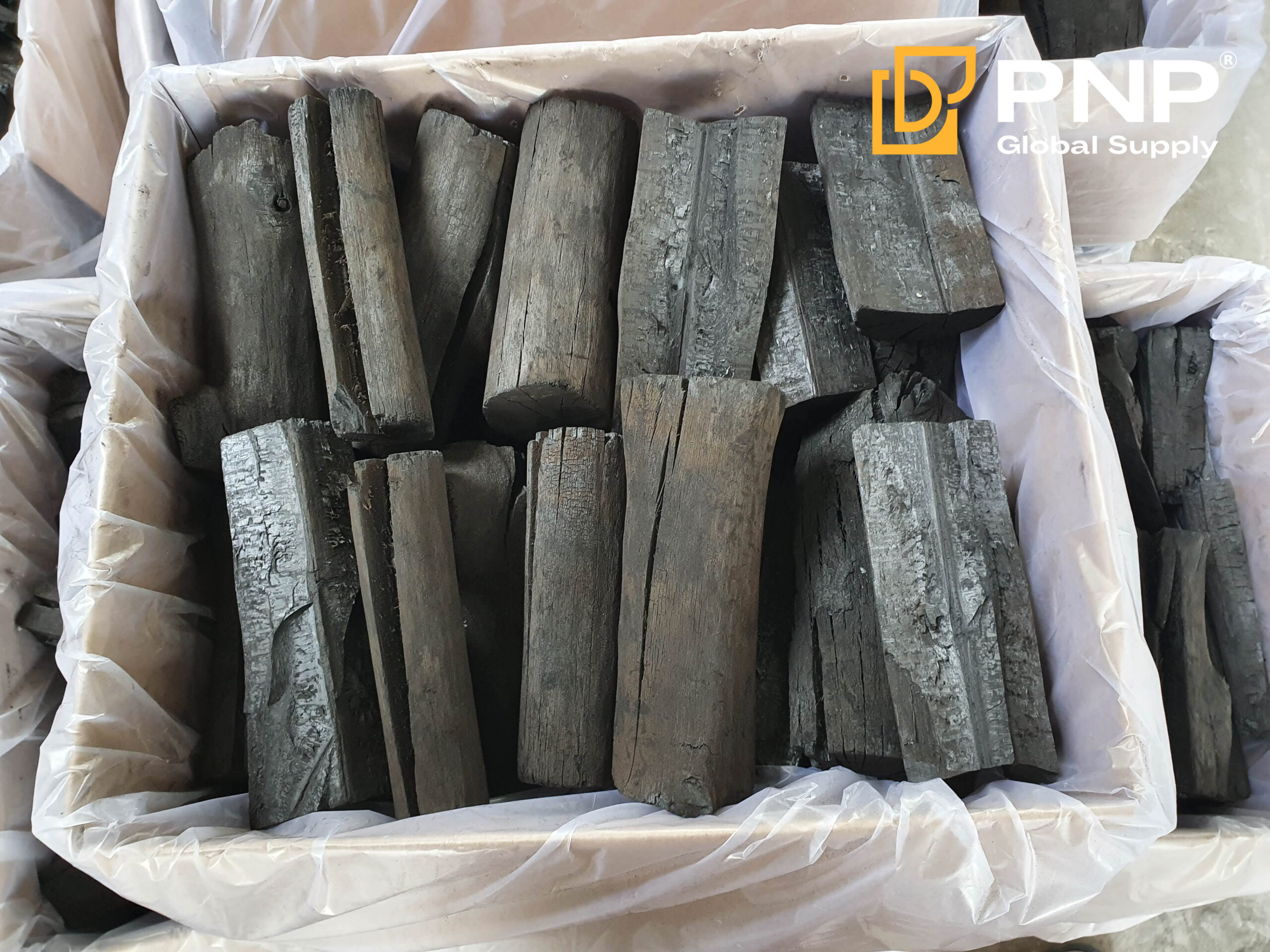
Conclusion
Choosing the best packaging solution for bulk hardwood charcoal export is an investment in product quality, customer satisfaction, and brand growth. Whether you’re packing lumpwood charcoal for retail BBQs or exporting tons of hardwood charcoal in jumbo bags, the right packaging makes your product safer, cleaner, and more appealing.
For exporters seeking to enhance their global reach, it’s time to upgrade your charcoal packaging and work with a trusted charcoal factory that understands the logistics of international shipping.
Contact your packaging partner today to design durable, sustainable, and cost-effective charcoal packages that will keep your brand shining in every market.
________________________________
Contact us for more information
Facebook: PNP Charcoal
Instagram: PNP Charcoal
Email: info@pnpglobalsupply.com


